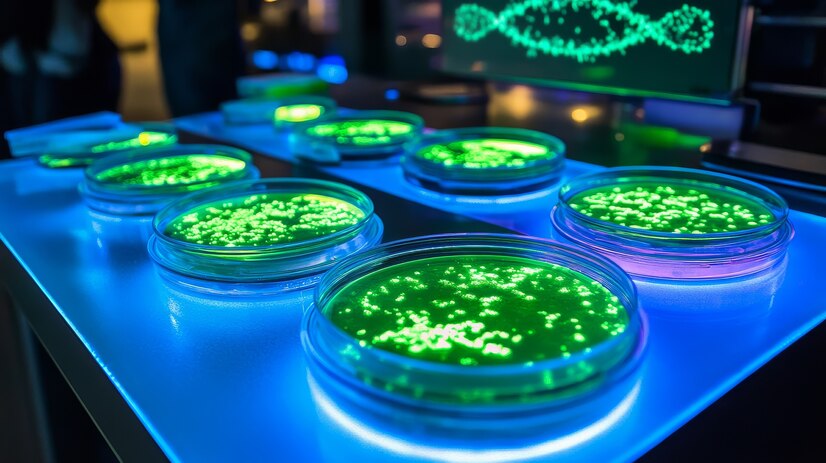Recombinant protein expression has revolutionized the fields of biotechnology, pharmaceuticals, and research. By allowing the production of proteins through genetic engineering, this technique has made it possible to produce proteins in quantities and qualities that were once unimaginable. In this article, we will explore the various advantages of recombinant protein expression, highlighting the role of Protein A chromatography resin in the purification process, and discussing how Recombinant Protein Expression Services and Custom Protein Expression can maximize the benefits of this technology.
Understanding Recombinant Protein Expression
Recombinant protein expression involves inserting a specific gene into a host organism—such as bacteria, yeast, or mammalian cells—to produce a desired protein. The process typically includes gene cloning, transformation of the host cell, induction of protein expression, and subsequent purification. This methodology offers numerous advantages over traditional protein production methods, making it a preferred choice in various applications.
High Yield of Proteins
One of the most significant advantages of recombinant protein expression is the ability to produce large quantities of proteins. Traditional methods of protein extraction from natural sources often yield very small amounts of the desired protein, making it difficult and costly to obtain sufficient quantities for research or therapeutic use. In contrast, recombinant expression systems can be optimized to produce significant amounts of protein, facilitating research, drug development, and manufacturing processes.
Example
For instance, monoclonal antibodies, which are crucial for various medical treatments, can be produced in high yields using mammalian cell lines through recombinant techniques. This high yield is essential for ensuring that these therapeutics can be produced in a cost-effective manner.
Cost-Effectiveness
Although the initial setup for recombinant protein expression might require a significant investment in equipment and expertise, the overall cost-effectiveness becomes apparent when considering the yield and purity of the proteins produced. With Recombinant Protein Expression Services, organizations can outsource the complexities of protein production, reducing the need for in-house resources. The economies of scale achieved through these services can lead to substantial savings in time and money.
Consistent Quality
Recombinant proteins produced through engineered systems tend to exhibit high consistency in terms of purity and biological activity. Unlike proteins extracted from biological sources, which can vary widely due to the complex nature of biological systems, recombinant proteins are generated in controlled environments. This control enables the production of proteins that meet specific quality standards, which is particularly important in therapeutic applications where consistent performance is crucial.
Role of Protein A Chromatography Resin
After expression, the purification of recombinant proteins is often carried out using techniques such as Protein A chromatography resin. This resin specifically binds to antibodies, allowing for highly selective purification. The use of this resin ensures that the final product is not only pure but also retains its biological activity, further enhancing the quality of the recombinant protein.
Ability to Produce Complex Proteins
Recombinant protein expression can facilitate the production of complex proteins that may be difficult to isolate from natural sources. For example, proteins requiring specific post-translational modifications, such as glycosylation, can be produced in mammalian systems where these modifications can occur. This capability is crucial for producing functional proteins that mimic their natural counterparts closely, especially in the context of therapeutic proteins.
Flexibility in Host Selection
Another notable advantage of recombinant protein expression is the flexibility in selecting the host organism for protein production. Different host systems offer unique advantages depending on the target protein.
Bacteria (e.g., E. coli) are commonly used for their rapid growth rates and ease of genetic manipulation, making them ideal for producing small proteins without complex modifications.
Yeast systems, such as Pichia pastoris, can perform some post-translational modifications and are suitable for expressing larger proteins.
Mammalian cell lines provide the best environment for producing proteins that require complex modifications, though they are more resource-intensive.
This versatility allows researchers and companies to choose the most suitable system for their specific needs, optimizing the chances of successful expression.
Custom Protein Expression Services
With the rise of Custom Protein Expression Services, organizations can tailor the expression system to meet their unique requirements. This customization includes selecting the right host organism, optimizing expression conditions, and even designing the expression vectors for enhanced yield and quality. Such tailored approaches ensure that the resulting proteins meet the specific needs of various applications, from research to therapeutics.
Speed of Development
Recombinant protein expression enables faster development timelines for producing proteins compared to traditional methods. This accelerated timeline is critical in fields such as drug development, where time-to-market can significantly impact a company’s competitive edge. By utilizing Recombinant Protein Expression Services, organizations can benefit from the expertise and established protocols of specialized service providers, further expediting the process.
Easy Scaling Up
Once a successful expression protocol is established, scaling up the production of recombinant proteins is relatively straightforward. In traditional methods, scaling up can often lead to inconsistencies in yield and quality. However, recombinant systems allow for more predictable scaling, which is essential for industrial applications.
Companies can increase production volumes to meet growing demand without significant alterations to the established protocols, ensuring a consistent supply of high-quality proteins.
Ethical Considerations
Producing recombinant proteins can also address ethical concerns associated with traditional methods. For instance, using animal-derived products poses ethical questions regarding animal welfare. By relying on recombinant expression systems, researchers can produce proteins without the need for animal sources, aligning with ethical standards in modern science.
Applications Across Various Fields
The advantages of recombinant protein expression extend across multiple fields, including:
Pharmaceuticals: Production of therapeutic proteins, enzymes, and monoclonal antibodies.
Research: Generation of proteins for basic research, structural biology, and drug discovery.
Diagnostics: Development of diagnostic reagents and assay components.
Industrial: Production of enzymes for use in manufacturing and biocatalysis.
The versatility and benefits of recombinant protein expression make it an invaluable tool in advancing scientific and medical research.
Conclusion
Recombinant protein expression offers numerous advantages, including high yield, cost-effectiveness, consistent quality, and the ability to produce complex proteins. The flexibility in host selection and the advancements provided by Recombinant Protein Expression Services and Custom Protein Expression ensure that organizations can meet their specific needs effectively.
Moreover, the incorporation of purification techniques such as Protein A chromatography resin enhances the quality and reliability of the final product. As the demand for recombinant proteins continues to grow, understanding these advantages will help researchers and companies harness the full potential of this powerful technology, driving innovation across various fields and ultimately improving health and well-being worldwide.


